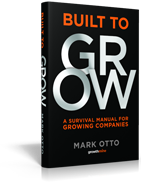
The Leadership Lie

Has the world changed dramatically over the last ten years? Of course it has. But as the context of leadership has changed, the content of leadership has withstood the test of time. Times change, technologies change, people change, workplaces change, and problems change. Leadership endures. Businesses, schools, organizations, and communities need people to lead.
Leadership is getting other people to want to follow you. It’s moving people forward with a common purpose. It’s inspiring others to be willing to struggle to achieve a shared vision.
I regularly come across companies with the same basic symptoms: A fuzzy image of the future, lack of a common purpose or shared aspirations, resistance to change, overwhelming problems and unrealized opportunities, and a general sense of unease. These are challenges that can only be solved with leadership.
But leadership has a big problem: The way leadership is sold makes it hard to tell good advice from bad.
“Leadership” is Everywhere
Leadership sells. It’s a billion dollar industry. And with demand comes the onslaught of experts – many of which know little or nothing about leadership.
In many cases, organizations lacking leadership turn to consultants. In the name of “leadership,” these consultants typically add more systems, processes, and tasks to the struggling organization. They offer PowerPoint decks, implementation plans, and program milestones – but the underlying problems remain unresolved. The result is companies that are over managed and under led.
But there are many other options companies and individuals can turn to in their quest to conquer the leadership challenge.
Search for leadership books and you’ll find no shortage of choices. There are books on the neuroscience of leadership. There are New Age authors who write about enlightenment and sprinkle in a bit of leadership speak. Some authors mix religion with leadership. Others write self-help books which masquerade as leadership.
Leadership development programs are everywhere, most with a fancy trademarked name. Executive coaching is readily available to tell you how to think. Almost every professional speaker has a leadership talk as part of his or her repertoire. And for those on a budget, leadership is available in a boxed set of CD’s.
The problem with most of these options is that they present their model or process as the secret sauce of leadership – even though what they have to say often has very little to do with real leadership. The financial incentives for getting you to buy their stuff blind them to the shortcomings and tempt them to mislead. They lie to their readers, audiences, and clients by selling leadership and delivering something else.
We’re inundated with leadership. But leadership isn’t a fad. It is, however, a young field and doesn’t have the centuries of study behind it that fields like physics or engineering do. And for that reason there’s a tendency to call many things leadership that aren’t.
Avoiding the Leadership Lie
What can you do to keep from falling victim to the dangerous myths, total nonsense, academic babble, and downright lies about leadership? First, know the source and their qualifications. If most of the author’s work is in marketing or sales, you probably aren’t looking at a leadership book – regardless of what it says on the cover. If the speaker’s bio highlights the number of people that have attended their speeches, but doesn’t mention his study of leadership, then he’s probably not a leadership master. If the consultant or coach doesn’t have significant leadership experience, don’t take leadership advice from her. And if the author is a self-help guru, stick to his self-help books.
You wouldn’t trust a doctor who ignored hundreds of years of medical research and experience. Don’t trust the charlatans peddling “leadership.” Don’t let all the bogus claims and absurd programs distract you from the real work of developing yourself as a leader.
Leadership development is self-development. Carefully choose the sources you use to develop your leadership capability. Look for people who’ve studied leadership and who are experienced leaders.
Real leadership can’t be condensed into a formula, distilled into tips, or presented as a step-by-step process. The first place to look for leadership is within yourself. Becoming a better leader requires commitment, practice, humility, reflection, and discipline. Leadership is a never-ending journey of growth and development. Genuine leadership is acquired through an accumulation of experiences – not through a single book, a ninety-minute speech, a six-month program, or a two-day seminar. Your background, your years of practice, and your level of effort will matter more than all the rules in all the leadership books ever written.
Where are you getting your leadership development?





